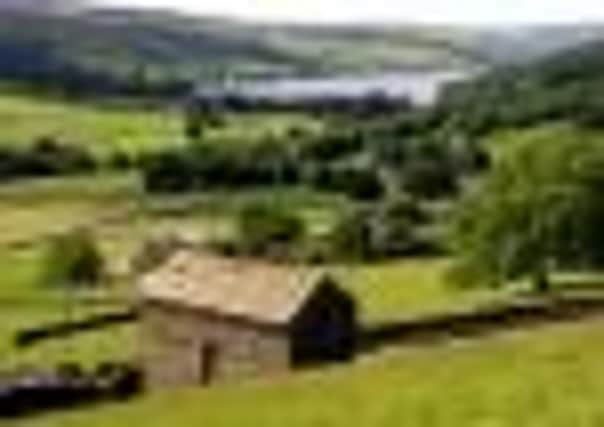Yorkshire landscape projects share £3m windfall


The Heritage Lottery Fund has announced that Dearne Valley in South Yorkshire and Upper Nidderdale in North Yorkshire will both receive first-round development grants under its nationwide Landscape Partnership programme in order to progress conservation schemes.
In the Dearne Valley, £1.8m has been announced to progress plans to showcase its landscape and industrial heritage across Barnsley, Rotherham and Doncaster, while £1.2m will be spent in Upper Nidderdale protecting the internationally important area situated on the edge of the Yorkshire Dales.
Advertisement
Hide AdAdvertisement
Hide AdThe Dearne Valley suffered greatly through rapid de-industrialisation, particularly the loss of the coal mining industry, and the funding is to help residents and visitors reconnect with its built, natural and cultural heritage.
Complementing the conservation work will be a programme of community outreach, including oral history, exhibitions, workshops and festivals.
A community forum is also to be established to help energise existing and new volunteers with the aim of involving people in the development and implementation of the scheme.
Coun Linda Burgess, Barnsley Council cabinet member for development, environment and culture, said: “We’re delighted that the Heritage Lottery Fund has given us this support for the Dearne Valley Area.
Advertisement
Hide AdAdvertisement
Hide Ad“It is a unique living landscape but it is overlooked or misunderstood.
“The Dearne Valley Green Heart Landscape Partnership will provide the chance to reveal the hidden Dearne Valley with its hidden landscapes and heritage, particularly industrial heritage having immense potential.
“The RSPB sanctuary at Old Moor demonstrates the potential for the area, attracting more than 100,000 visitors every year.
“It is opportunities like this that can be built on, encouraging more visitors into the area, providing people with a chance to learn new skills, making more people aware of the area and protecting the precious heritage and environment.”
Advertisement
Hide AdAdvertisement
Hide AdAlongside its agricultural industry, Nidderdale also had thriving lead mining, spinning, weaving, corn milling and brewing industries.
It is internationally important for its flora and fauna, such as the Elephant Hawk-moth, marsh ragwort and ragged robin, and also has a large population of breeding upland birds, including merlin, curlew and golden plover.
It has vast reserves of peat which are important to the prevention of downstream flooding.
Key to the funding for the new conservation project, is training in local heritage skills including practical skills courses for schools, upland management apprenticeships for young people, and landowner training days.
Advertisement
Hide AdAdvertisement
Hide AdThe work will build on other ongoing projects such as a two-year scheme launched in 2011 to research the history of more than 1,000 farm buildings to better understand agricultural methods in Nidderdale over the previous centuries.
The research project is being spearheaded by the Nidderdale Area of Outstanding Natural Beauty (AONB) and will record its historic buildings through survey work and mapping.
Organisers say while a number of traditional farm buildings have already been recorded through individual surveys and local history groups, the project will help document the entire collection of traditional farm buildings in Nidderdale
The Dearne Valley and Nidderdale are two of 13 areas in Britain to receive a share of the £20m announced by the Heritage Lottery Fund today.
Advertisement
Hide AdAdvertisement
Hide AdFiona Spiers, Head of the Heritage Lottery Fund for Yorkshire and the Humber said: “Upper Nidderdale is a dramatic part of Yorkshire’s countryside and of particular importance due to its huge diversity of flora, fauna and bird populations, while the Dearne Valley is a landscape that has been heavily shaped by industry and then its subsequent loss.
“We’re delighted to be giving our initial support for these programmes.”